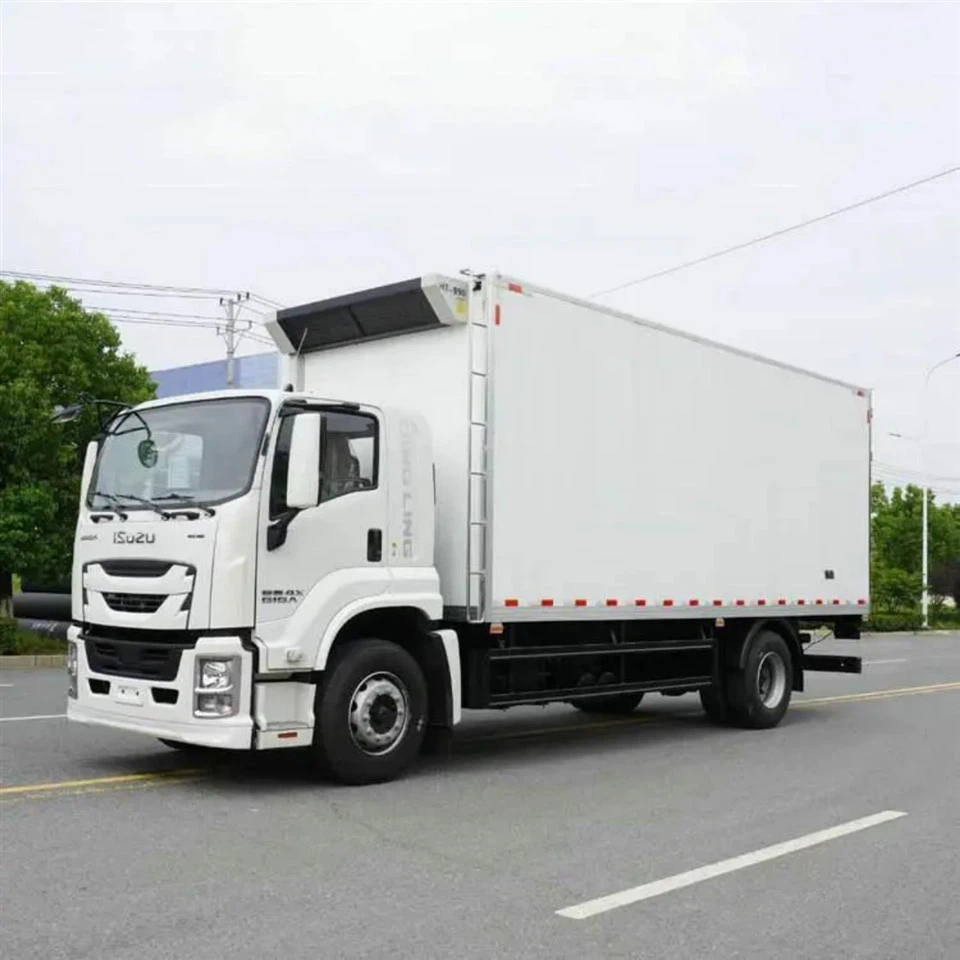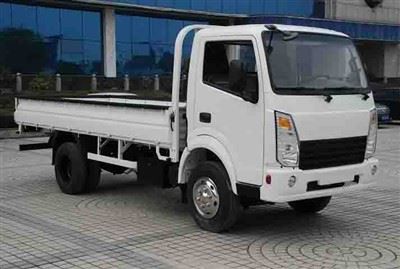Ultimate Guide to EV Truck Conversion Kits: Transform Your Vehicle Today

Introduction
As the world shifts toward sustainable energy solutions, the demand for electric vehicles (EVs) has surged. For truck owners, converting their traditional gasoline or diesel-powered trucks into electric vehicles has become an appealing option. EV truck conversion kits provide an innovative solution for those looking to reduce their carbon footprint and enjoy the benefits of electric driving. In this article, we will delve into everything you need to know about EV truck conversion kits, from understanding how they work to practical tips for a successful conversion.
What is an EV Truck Conversion Kit?
An EV truck conversion kit is a package of components designed to transform a conventional truck into an electric vehicle. These kits typically include an electric motor, battery packs, controllers, chargers, and other necessary components needed for the conversion. With these kits, truck owners can repurpose their vehicles, enabling them to harness the benefits of electric energy, such as reduced emissions, lower maintenance costs, and improved driving performance.
Benefits of Converting Your Truck to Electric
Environmental Impact
One of the primary reasons for converting to electric is the positive environmental impact. Electric trucks produce zero tailpipe emissions, which significantly reduces air pollution in urban areas and contributes to a healthier planet.
Cost Savings
While the initial cost of an EV conversion kit might be significant, over time, you can save money on fuel, maintenance, and repair costs. Electric motors require less maintenance than internal combustion engines, leading to long-term savings.
Performance Advantages
Electric motors deliver instant torque, providing superior acceleration and a smooth driving experience. This can be especially advantageous for trucks that need to perform heavy lifting or towing.
Government Incentives
Many governments offer financial incentives for electric vehicle conversions, including tax credits, rebates, and grants. Researching and understanding these programs can significantly reduce conversion costs.

Types of EV Truck Conversion Kits
Complete Conversion Kits
Complete conversion kits provide all necessary components for a full electric drivetrain. These kits are ideal for those who want to convert their trucks entirely to electric from the ground up.
Partial Conversion Kits
For some truck owners, a partial conversion kit may be sufficient. These kits typically focus on specific components, such as hybrid systems that integrate an electric motor with the existing internal combustion engine.
Custom Conversion Solutions
If you have a unique vehicle or specific performance requirements, custom conversion solutions are often available. These can be designed based on manufacturers’ specifications and individual user needs.
Key Components of an EV Truck Conversion Kit
Electric Motor
The electric motor is the heart of an EV conversion kit. Choosing the right motor is essential, as it dictates the vehicle’s performance. Common types include brushed, brushless, AC, and DC motors.
Battery Pack
The battery pack is critical for providing power to the electric motor. Lithium-ion batteries are the most popular choice due to their energy density, lightweight, and long lifespan. Understanding your truck’s range requirements will help you choose the right battery size.
Controller
The controller manages power delivery from the battery to the motor. It plays a vital role in ensuring the efficient operation of the electric drivetrain.
Charger
A charging system is essential for re-powering your vehicle. This can include standard Level 1 or Level 2 chargers, depending on your home electricity supply and charging habits.
Adapters and Mounting Hardware
Adapters will help integrate the electric components into your existing truck framework, while mounting hardware will allow for secure installation of the electric motor and battery pack.
Steps to Convert Your Truck to Electric
1. Research and Planning
Understand your truck’s specifications, the available conversion kits, and your needs. Determine the type of kit that suits you best based on your driving habits and desired range.
2. Purchase an EV Truck Conversion Kit
Select a reputable supplier for your EV conversion kit. Ensure that the kit comes with all necessary components and detailed installation instructions.
3. Gather Tools and Equipment

Before beginning the conversion, prepare the necessary tools, which may include wrenches, screwdrivers, sockets, jacks, and other equipment needed for vehicle disassembly and assembly.
4. Remove Existing Components
Carefully disassemble the existing internal combustion engine, transmission, fuel system, and exhaust system. It’s essential to follow safety protocols and ensure proper disposal of any hazardous materials.
5. Install the Electric Motor
Follow the kit instructions to properly mount the electric motor in place of the internal combustion engine. Ensure that the motor aligns correctly with the existing driveline components.
6. Install the Battery Pack
Securely mount the battery pack in a suitable location, ensuring proper weight distribution for optimal driving dynamics. Connect the battery to the electric motor and controller according to the provided wiring diagrams.
7. Install the Controller and Charger
Once the motor and battery are set, install the controller and charger in accessible locations within the truck. Make all necessary electrical connections to ensure seamless operation.
8. Testing and Calibration
Before hitting the road, conduct thorough testing of the electrical components. Ensure proper charging functionality and check for any potential issues with wiring or connections.

9. Registration and Compliance
After conversion, check with local regulatory bodies to ensure your vehicle complies with local laws and regulations for electric vehicles. This may involve inspections or modifications to your truck’s title.
Common Challenges in EV Truck Conversions
High Initial Costs
Although cost savings can be realized in the long run, the initial cost of purchasing and installing an EV conversion kit can be a significant barrier for some truck owners.
Technical Challenges
The conversion process requires a certain level of mechanical skill and knowledge of electrical systems. Owners may encounter challenges if they are not adequately prepared or lack experience.
Battery Range Anxiety
One of the most common concerns for electric vehicle users is battery range. Understanding battery capacity and choosing the right components can alleviate this anxiety.
Availability of Parts
While many parts for EV conversions are readily available, shortages or backorders could complicate or delay the conversion process.
Practical Tips for Success with Your EV Truck Conversion
Choose the Right Truck
Select a truck that is suitable for conversion. Ideally, a vehicle with a simple mechanical structure and ample space for the electric components is best.
Work with Professionals
If you feel unsure about any part of the installation process, consider hiring professionals. Certified mechanics or companies specializing in EV conversions can provide guidance and assistance.
Get Involved in EV Communities
Join online forums and local EV clubs. Sharing experiences and advice with other truck owners can provide valuable insights and support throughout your conversion journey.
Maintain Your EV After Conversion
Regular maintenance is critical for ensuring your electric truck operates efficiently and lasts as long as possible. Keep an eye on the battery health and motor’s performance.
Frequently Asked Questions (FAQ)
What is the average cost of an EV truck conversion kit?
The cost can vary significantly based on the kit’s components and the truck model, typically ranging from $5,000 to $20,000, excluding installation costs.
Can any truck be converted to electric?
Most trucks can be converted, but the suitability depends on the vehicle’s size, structure, and existing powertrain. Research specific models to ensure compatibility.
How long does the conversion process take?
The conversion process can take anywhere from a few days to several weeks, depending on the complexity of the installation and the experience level of the individual performing the work.
Are electric trucks cheaper to maintain than traditional trucks?
Yes, electric trucks typically have lower maintenance costs due to fewer moving parts and no need for oil changes, exhaust systems, or other traditional engine-related services.
What kind of range can I expect with my converted truck?
The range of your converted truck will depend on the battery pack’s size and efficiency, with most conversions offering ranges between 50 to 200 miles on a single charge.
Do I need special insurance for my converted electric truck?
It is advisable to inform your insurance company about the conversion, as this may affect coverage. Some companies offer insurance specifically for modified or electric vehicles.
